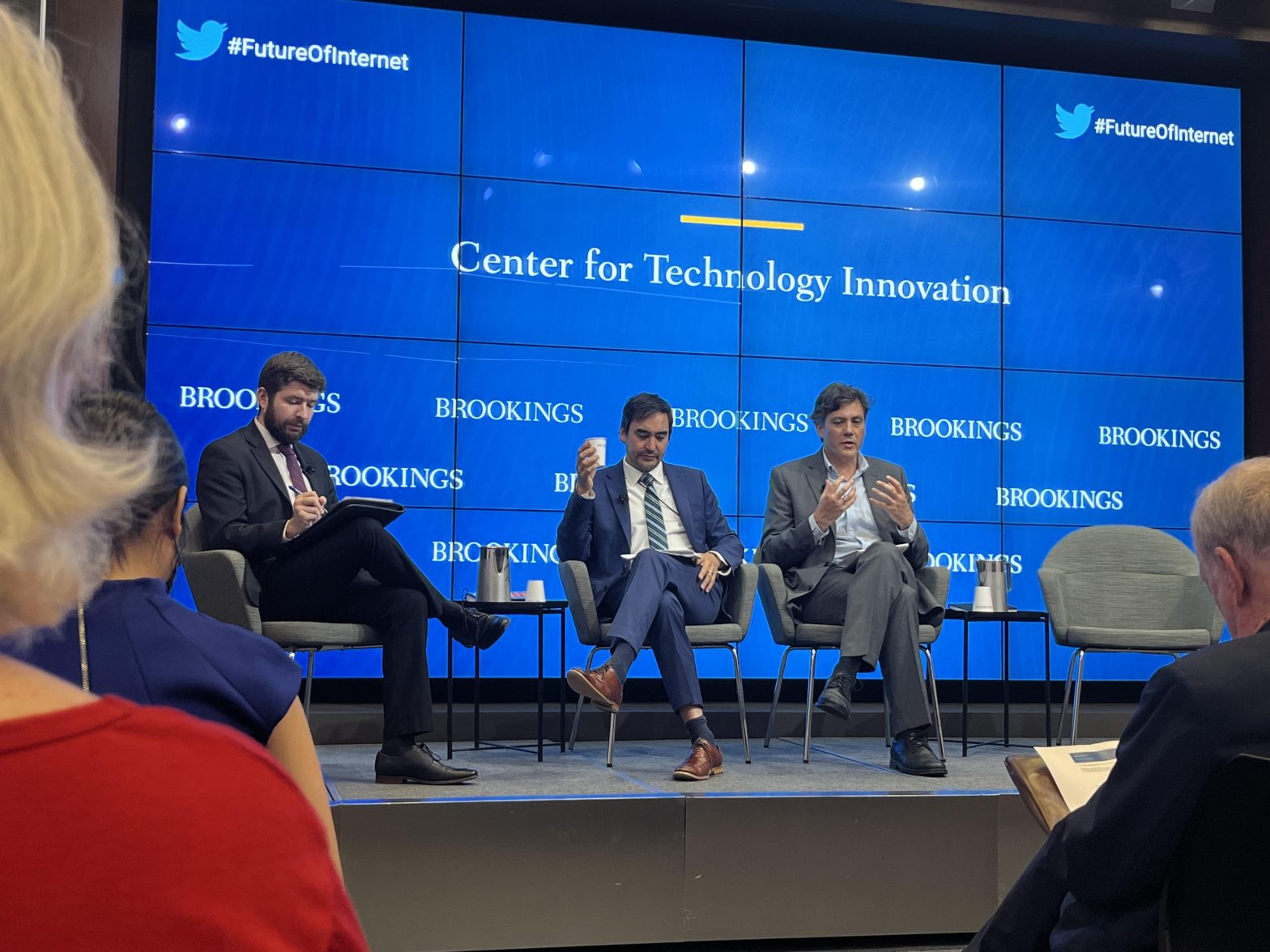Reigniting Democracy Using the Internet

WASHINGTON — Laughter rang out at the Brookings Institution when an audience question came to two White House staffers: “Was the internet a mistake?”
The question came about a half hour into a discussion about how the U.S. is inspiring a global effort to reignite the fight for democracy around the globe through the “Declaration for the Future of the Internet.”
Currently, authoritarian regimes are cracking down on a free internet in their own countries and spreading misinformation to people living in democratic countries in an attempt to weaken democracy globally.
Combating that is not as easy as turning back the clock on the internet, policy and democracy experts agreed at Brookings. However, maintaining a free, global internet is an essential tool for democratic governments to combat authoritarianism, they agreed.
“The fight for freedom on the internet is the fight for freedom period,” said Tim Wu, a special assistant to the President for technology and competition policy who helped craft the agreement which more than 50 countries have signed.
The declaration is a non-binding agreement among countries that lays out broad goals to allow the internet to reinforce participation in democracy while also maintaining net neutrality, security and reliability. It’s a roadmap of how to generally navigate the various issues, including privacy and free speech, countries are currently facing and attempting to fix.
Currently, the European Union, U.S. and other countries around the world are working on privacy and antitrust laws aimed at regulating large internet-based companies.
“We want to get people aligned in the sense that this is the direction people should be going,” Wu said.
Authoritarianism has been on the rise over the past decade, according to Allie Funk, the research director for technology and democracy at the Freedom House. Her organization has been tracking governments across the world for 16 years, and each year researchers have seen a decline in democracy.
As democracy has been in decline, restrictive authoritarian governments have been learning from each other to impose stricter surveillance and crackdowns on free speech utilizing the internet, explained Peter Harrell, a special assistant to the President and the senior director for international economics and competitiveness who also helped craft the agreement.
However, democracies “need to be rather aggressively pushing back against digital authoritarianism,” he said, explaining democracies have maintained a more hands-off approach to regulation to allow free speech.
That’s a significant effort behind the Biden administration’s push to strengthen global partnerships, Harrell and Wu said.
“Democracies have been at their most successful when they recognize the challenges that they are facing from the spreading movement and respond to it. And we’ve done it before, and we can do it again, but it requires us to realize what is going on,” Wu said.
On the domestic side to comply with this declaration billions of dollars are being used to expand broadband internet to every home and Congress is working on privacy and antitrust laws that Biden supports, Wu said.
To combat harmful misinformation is a more difficult task.
However, taking steps to declassify information in a timely manner, like the U.S. did when Russia began invading Ukraine, has helped quell potential conspiracies, explained Jessica Brandt, the policy director for the Artificial Intelligence and Emerging Technology Initiative at the Brookings Institution.
She talked about her recent study of the spread of misinformation through state media.
The Chinese have been churning out articles about COVID-19 containing misinformation about its origins, she explained. And while American news outlets have spread real information, those stories are often buried, she said.
“Xi, like Putin, views information as a threat. It is a weapon to be wielded abroad. It is made to be tightened and controlled at home. And I think that’s what’s spreading,” Brandt said.
Overall, the experts maintain hope.
In the early days of the internet there was an optimism about the set of networks that could connect people around the globe, Wu explained.
“One of the geniuses of the American system is we have the ability to recover and re-understand what it takes to have and support the kind of democracy as a society we want,” Wu said.
Madeline can be reached by email at [email protected] or on Twitter @ByMaddieHughes
























